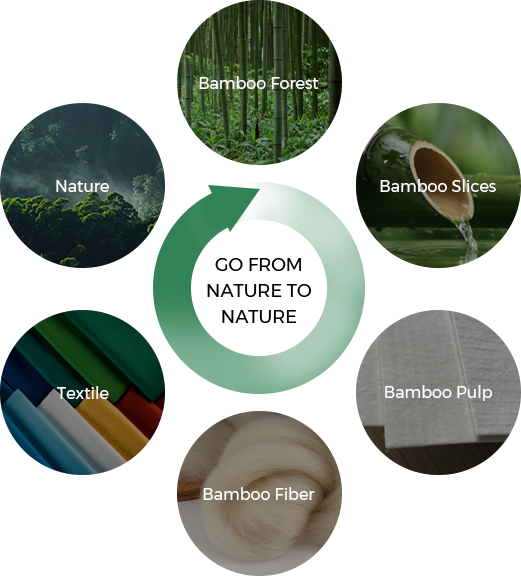In the era of heightened environmental consciousness, the textile industry is undergoing a transformative shift towards sustainability, with recycled materials at the forefront of innovation. Among these eco-friendly alternatives, Recycled Polyester Fabric emerges as a sustainable revolution, offering a compelling solution to address the environmental impact associated with traditional polyester production. This unique fabric not only diverts plastic waste from landfills but also provides a range of benefits, from resource conservation to versatile applications in fashion and beyond.
At the heart of
Recycled Polyester Fabric lies a commitment to repurposing post-consumer and post-industrial plastic waste. Conventional polyester is derived from petroleum-based sources, contributing to environmental concerns such as resource depletion and greenhouse gas emissions. In stark contrast, recycled polyester utilizes discarded plastic bottles and other polyester-based textiles as feedstock, diverting these materials from landfills and incineration. This process not only reduces the demand for virgin polyester but also addresses the growing issue of plastic pollution in oceans and landfills.
The production of Recycled Polyester Fabric begins with the collection and sorting of plastic bottles. These bottles are then cleaned, stripped of labels and caps, and shredded into small flakes. Through a meticulous process, these flakes are melted down and extruded into fine polyester fibers, which are then spun into yarn. The resulting recycled polyester yarn is used to create fabrics with properties comparable to traditional polyester but with a significantly reduced environmental footprint.
One of the primary advantages of Recycled Polyester Fabric is its positive contribution to resource conservation. The production of virgin polyester requires extracting crude oil and a significant amount of energy, contributing to environmental degradation and carbon emissions. By repurposing existing plastic waste, recycled polyester conserves valuable resources, mitigates the need for new raw materials, and reduces the energy required in the manufacturing process. This resource-efficient approach aligns with the principles of circular economy, promoting the reuse and recycling of materials to minimize waste.
Versatility is another hallmark of Recycled Polyester Fabric. The fabric retains the inherent qualities of traditional polyester, including durability, wrinkle resistance, and color retention. This versatility allows it to be seamlessly integrated into a wide range of applications, from sportswear and outdoor gear to everyday clothing and home textiles. The fabric's ability to withstand various conditions makes it a practical and sustainable choice for consumers seeking durable and high-performance textiles.
Moreover, Recycled Polyester Fabric often boasts a lower carbon footprint compared to its conventional counterpart. The recycling process consumes less energy than the production of virgin polyester, resulting in reduced greenhouse gas emissions. This environmental benefit aligns with the growing demand for sustainable choices among environmentally conscious consumers, who prioritize products that contribute to mitigating climate change and minimizing environmental harm.
The fashion industry, in particular, has embraced the potential of Recycled Polyester Fabric as a sustainable alternative. As consumers become more eco-conscious, fashion brands are increasingly incorporating recycled polyester into their collections. This shift reflects a commitment to responsible sourcing and production practices, aligning with the broader movement towards sustainable and ethical fashion.
Critics of traditional polyester often highlight concerns about microfiber pollution, as tiny synthetic fibers shed during washing can end up in oceans and waterways. Recycled Polyester Fabric, however, addresses this issue by reducing the demand for new polyester production. Additionally, advancements in technology aim to minimize microfiber shedding through innovative dyeing and finishing processes, further enhancing the fabric's environmental credentials.
In conclusion, Recycled Polyester Fabric stands as a pioneering force in the sustainable textile landscape. Its use of recycled materials not only diverts plastic waste from landfills but also conserves resources and reduces carbon emissions. As the textile industry continues its journey towards greater sustainability, Recycled Polyester Fabric serves as a testament to the possibilities of circular economy principles, proving that discarded materials can be transformed into high-quality textiles that meet the demands of both consumers and the planet.





